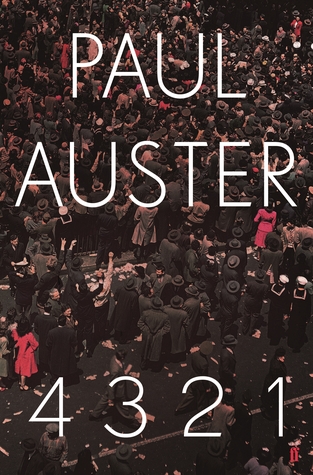Check out on Goodreads
Get at Book Depository
★★★★☆ 4 stars
I have neglected posting this book’s review for far too long. Especially when it has been such a pleasant experience reading it as it has. This is one of those slow-burn books that you just can’t really read fast – what with it being over 800 pages and all, but not just that. This book is such a long, big experience that you just can’t gulp it all down in one sitting. It’s definitely hefty, strong, literary and thought provoking.
It’s not easy to sum it up. Not only is it an account of an entire life of someone – it’s an account of someone’s life in four different ways it could have gone. So the amount of possibilities it covers it quite big. That means childhood, growing up, love, loss, death, friendship, sexuality and sexual encounters, God, searching for life’s meaning, racial issues, books, writing, sports, trauma… you name it. It’s vast. It’s all there. And it’s presented in a neutral way – it doesn’t judge. It’s just a life lived, through the eyes of the person experiencing it. You get to feel about it however you want.
High points? First of all, this book is a monument to literary love – there are so many good literary works mentioned and appreciated, as well as loads of music references. Which ever incarnation of the main character we are following, he ends up with a certain love for literature, either a writer, a reporter, or just a reader, but an ardent one. The book also has great descriptions of feelings, reasons for having them, life questions, questions you have when growing up and going out into the world. The characters feel very lifelike, likeable, easy to get attached to. You will probably end up rooting for them – even when they mess their lives up quite irreparably. The most interesting part is that we get multiple different versions of the same people – just different enough to be interesting, yet similar enough to be likeable. Another great point is that this book offers a lot of background on the partial history of American in the 1960-70’s, or in other words – it bares everything that’s ugly about America in its recent history. There’s Vietnam, the need and lack of feminism, student riots and shootings against the black people of Newark, and many other societal problems and changes of the middle of the 20th century in the US. As a person from Europe, I was extremely interested in reading about this in terms of how it affected people, rather than just dry historical facts.
And then there’s also all the love for Horn&Hardart, that I found out about through this book.
Low points? The story is sometimes hard to follow because of the similarity of the stories – essentially, the book is made up of long chapters, each detailing a period in the boy’s life. The problem is, you forget which is essentially which because it’s always the same person, but 4 versions of them – all pages upon pages apart. That was a problem for me at the start, but in the end I figured it probably doesn’t really matter to follow the story factually, as much as it would to just follow it emotionally. Another low point would be that I didn’t quite get into the story at least until I read up to 20%, which, next to the bulk of 880 pages that this book is, is still a whopping 176. Most people will have dropped a book at this point if that’s how long it takes them to get into it.

So, in short – you should read this book, if:
- You like slow and deep books
- You care about emotional development and inner drama more than outward action
- You have read big serious books and liked them
- You don’t DNF if it’s not immediately interesting within 20 pages
- You get attached to characters
- You love beautiful, almost poetic prose
Yes, Amelia @ A Grey Box and Delphine @ Delphine’s Babble on Some Good Reads [blog has been removed, sadly] – I dare say, you would both like it. (And not just because of the striking similarity between your Twitter usernames)
You support this blog by buying the book from Book Depository.
I thank Faber&Faber for providing me the book in exchange for my honest opinion.
So, do you read literary? Have you read anything by Paul Auster? And do you enjoy really long, slow paced books?
I’m Evelina and I blog about books that made an impression on me. I love middle grade, women’s, scifi and some literary too.

